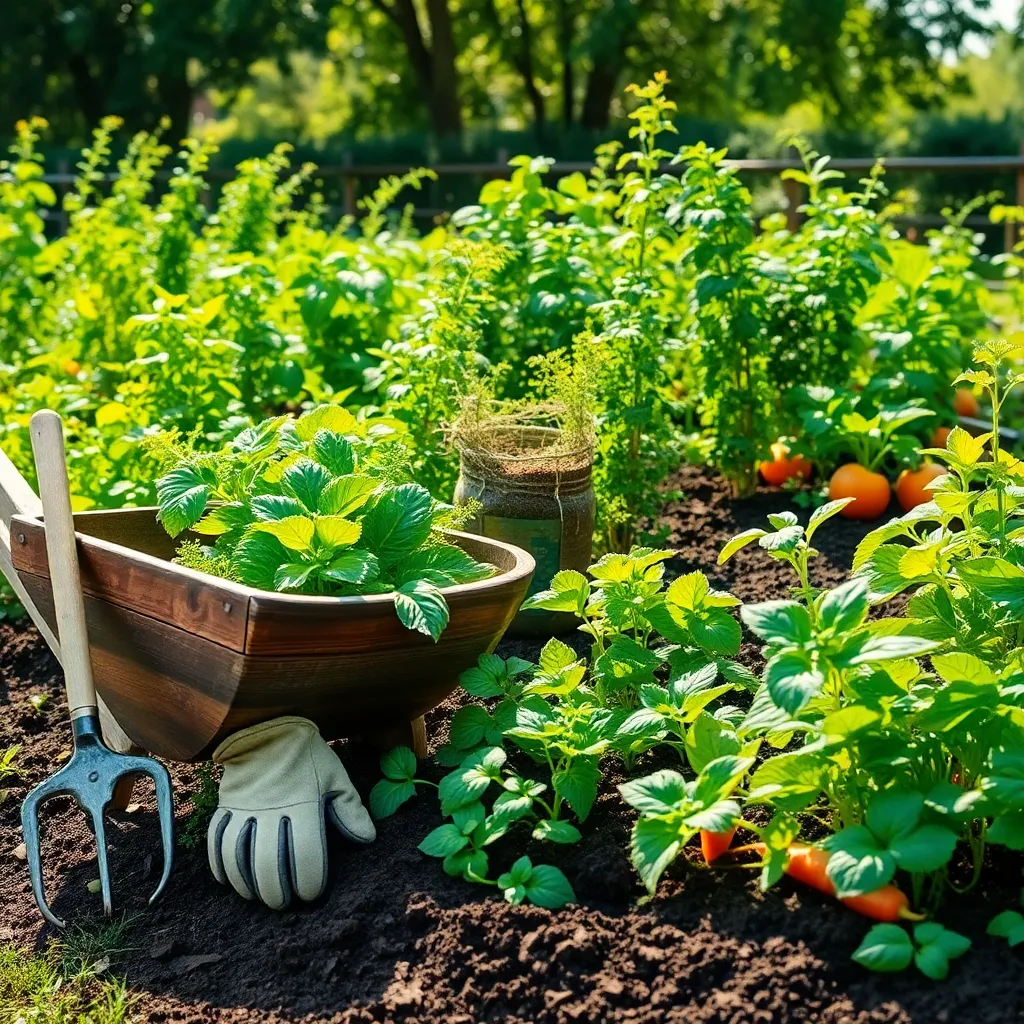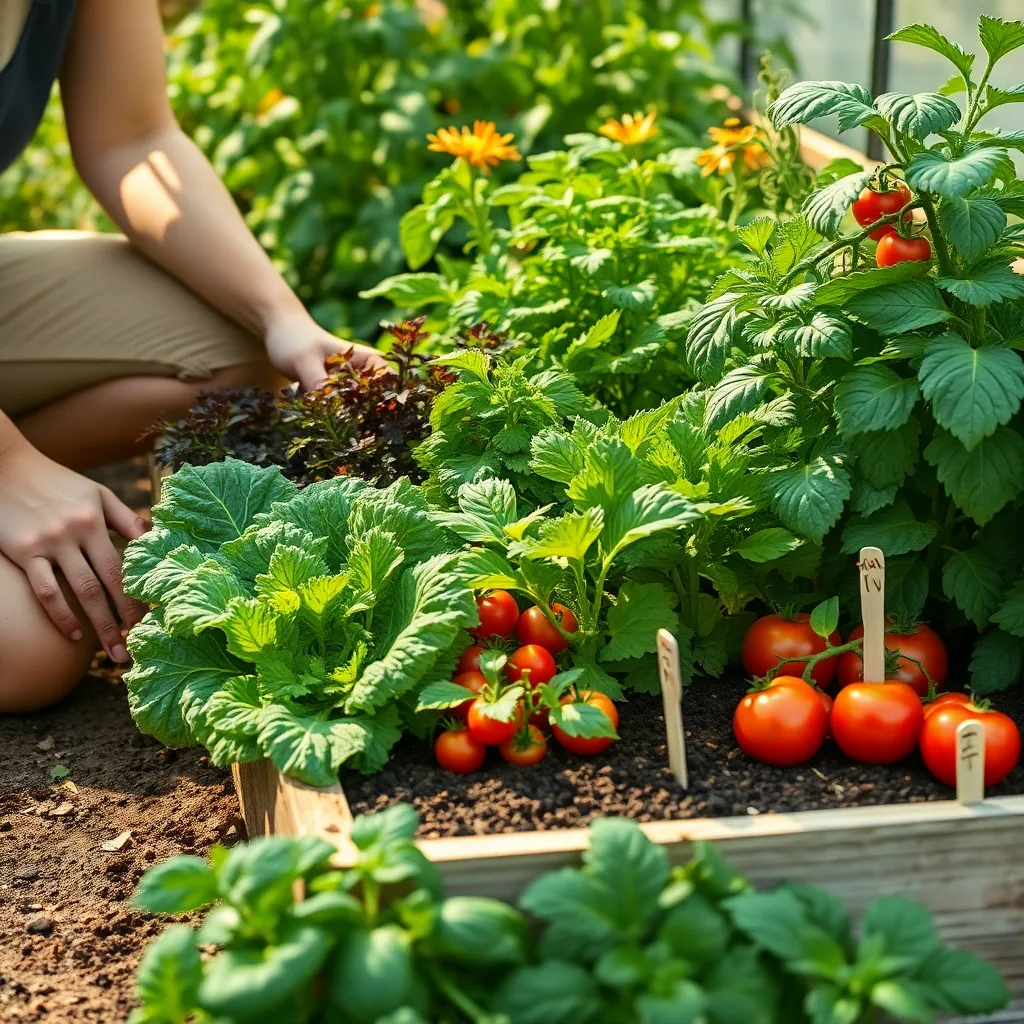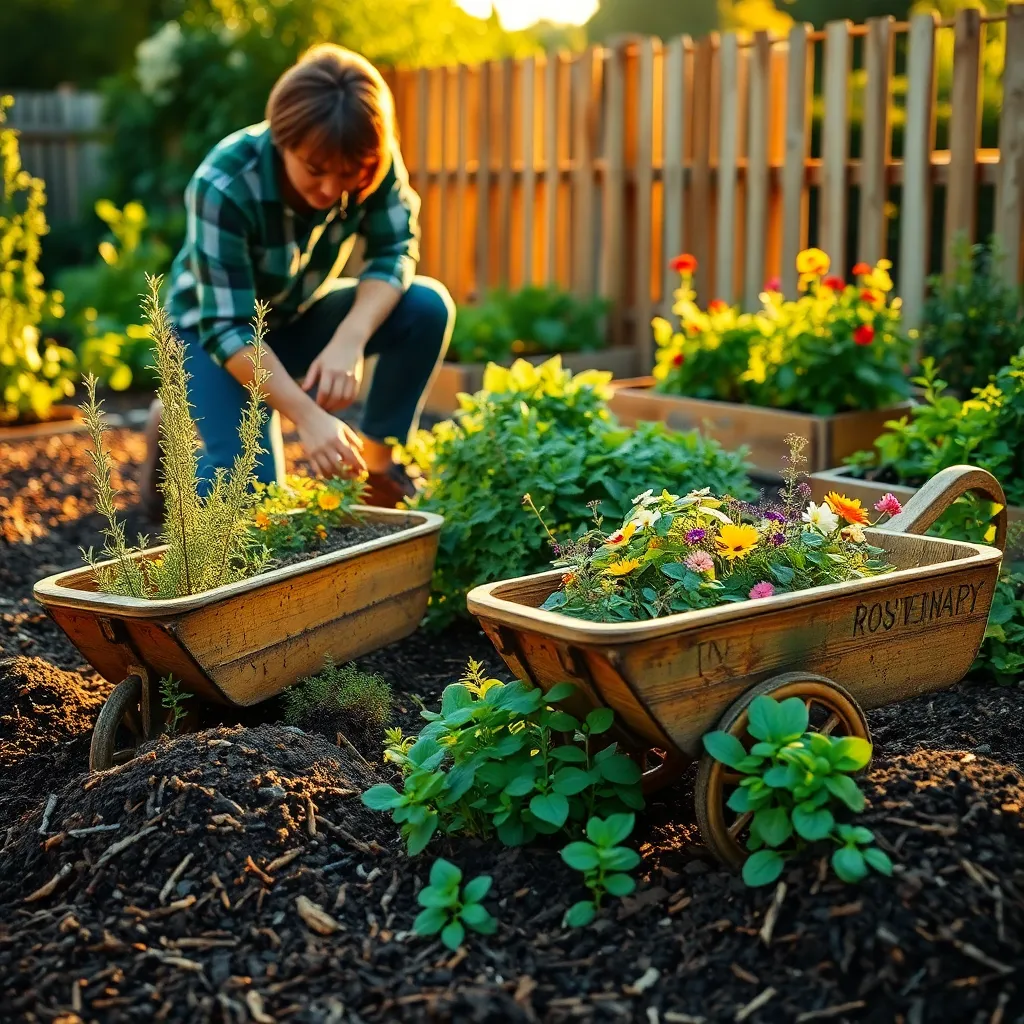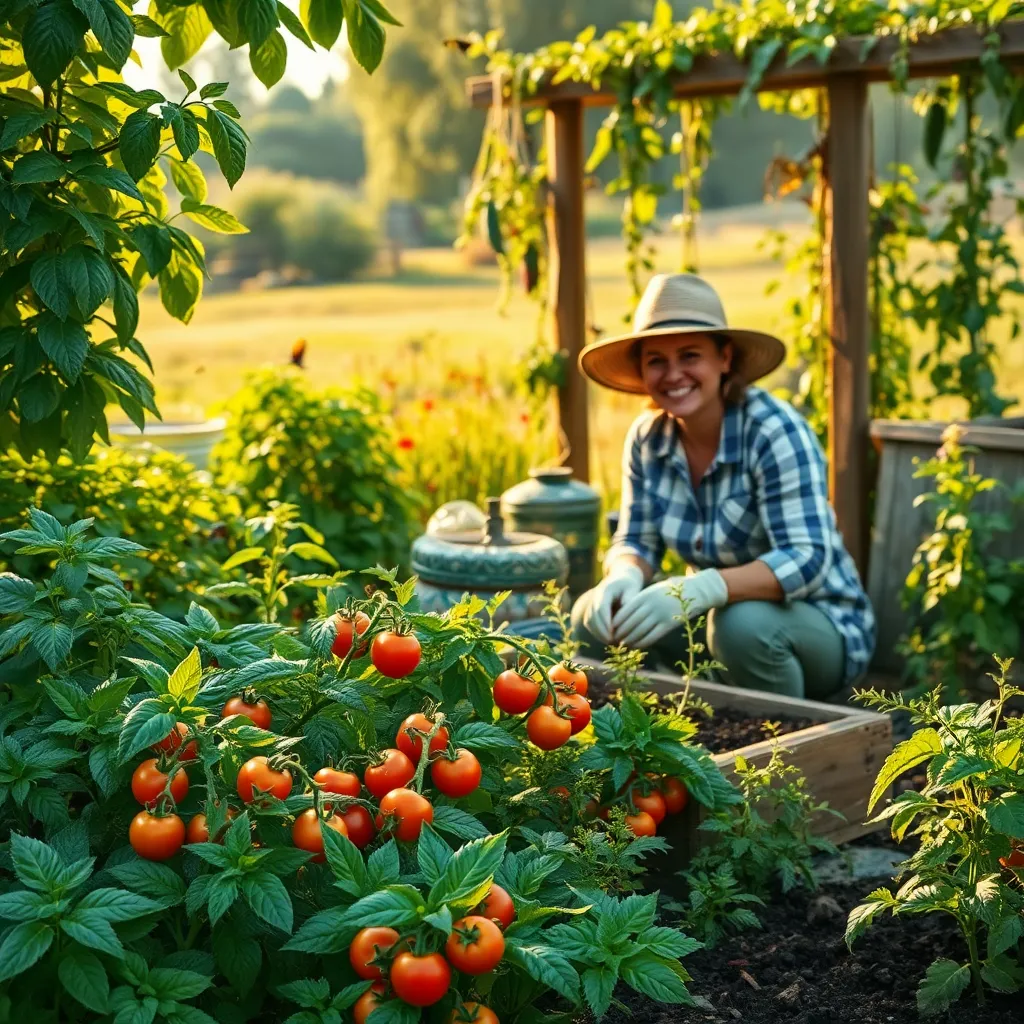Imagine stepping into your backyard, inhaling the crisp, earthy scent of freshly turned soil, and knowing that every plant you nurture contributes not just to your plate, but to the planet. Whether you’re a beginner gardener just dipping your fingers into the rich tapestry of soil or a seasoned grower with years of experience under your belt, the shift towards organic gardening at home is not just a trend—it’s a transformative lifestyle choice. The importance of this practice lies in its ability to reconnect us with nature, reduce our ecological footprint, and provide a bounty of fresh, nutritious produce right from our own garden beds.
Embarking on the journey of organic gardening at home offers a plethora of benefits that go beyond the obvious health advantages. In this article, you’ll discover how embracing organic methods can enhance soil fertility, promote biodiversity, and reduce the use of synthetic chemicals. We’ll delve into practical tips and insights that will empower you to cultivate a garden that’s as kind to the environment as it is to you. Whether you’re looking to grow juicy tomatoes or vibrant blooms, you’ll find that organic gardening opens up a world of natural abundance and sustainable practices, making it an enriching endeavor for gardeners of all levels.
Improving Soil Health Naturally

Improving soil health naturally is a cornerstone of organic gardening, offering numerous benefits for plant growth and ecosystem balance. By focusing on enhancing the soil’s organic matter, such as compost, gardeners can create a nutrient-rich environment that supports plant vitality.
Adding organic matter like compost or well-rotted manure can significantly improve soil structure, promoting better root penetration and water retention. For beginners, incorporating a layer of compost about two inches thick and mixing it into the topsoil is a simple yet effective strategy.
Practicing crop rotation can also enhance soil health by preventing nutrient depletion and reducing pest buildup. Rotating crops with different nutrient requirements and root structures helps maintain a balanced and thriving soil ecosystem.
Advanced gardeners might consider utilizing cover crops, such as clover or vetch, which can fix nitrogen and add organic matter back into the soil when turned under. These green manures not only enrich the soil but also prevent erosion and suppress weeds naturally.
Testing your soil every few years ensures you understand its current condition and can adjust your practices accordingly. By identifying nutrient deficiencies or pH imbalances early, you can adapt your soil amendments to better support plant health.
Boosting Nutrient-Rich Harvests

To boost nutrient-rich harvests, it’s essential to start with high-quality compost. Compost adds vital organic matter to the soil, enhancing its structure and fertility, which directly benefits plant growth.
Incorporating crop rotation into your gardening routine can significantly improve your yields. By alternating plant families each year, you can prevent soil depletion and reduce pest and disease buildup.
For optimal growth, ensure your plants receive adequate water through a consistent watering schedule. Morning watering is ideal, as it allows foliage to dry and reduces the risk of fungal diseases.
Consider using organic mulches like straw or wood chips to retain soil moisture and suppress weeds. Mulching also gradually adds nutrients back into the soil as it breaks down, supporting plant health.
For those looking to maximize their harvests, practice companion planting. By planting complementary species together, such as tomatoes with basil, you can enhance flavor and deter pests naturally.
Test your soil annually to check for nutrient deficiencies and pH imbalances. Using a simple at-home soil test kit, you can tailor your soil amendments to meet the specific needs of your plants.
Advanced gardeners might consider implementing a cover cropping strategy during the off-season. Cover crops like clover or rye improve soil structure, fix nitrogen, and protect against erosion, setting the stage for a bountiful harvest in the following season.
Reducing Chemical Exposure Risks

Organic gardening significantly reduces the risk of chemical exposure by eliminating the need for synthetic fertilizers and pesticides. By opting for natural alternatives, such as compost and mulch, gardeners can create a healthier environment for both plants and people.
The use of compost not only enriches the soil but also enhances its ability to retain moisture, reducing the need for frequent watering. Mulching with organic materials like straw or wood chips helps maintain soil temperature and suppresses weeds, further limiting the need for chemical interventions.
For pest management, consider introducing beneficial insects like ladybugs and predatory beetles that naturally control pest populations. Companion planting is another effective strategy, where certain plants are grown together to naturally deter pests or improve growth, minimizing the need for chemical pesticides.
Advanced gardeners might explore creating their own organic pest sprays using ingredients like garlic, neem oil, or hot pepper, which are effective yet safe for the environment. Regularly inspecting plants for early signs of pest infestation allows for swift, natural interventions, keeping your garden chemical-free and thriving.
Enhancing Biodiversity in Gardens

Enhancing biodiversity in your garden is a rewarding way to improve the health and resilience of your plants. By introducing a variety of plant species, you can create a more balanced ecosystem that encourages beneficial insects and reduces pest problems.
Start by incorporating a mix of native plants, which are well-adapted to your local climate and soil conditions. Native plants often require less water and maintenance, making them a practical choice for gardeners seeking to minimize their environmental impact.
Planting a range of flowering plants can attract pollinators such as bees and butterflies, which are essential for the health of many garden crops. Consider species like lavender, coneflowers, and zinnias, which are known for their pollinator-friendly blooms and vibrant colors.
Creating layers in your garden with trees, shrubs, and ground covers can provide habitats for a variety of wildlife. This approach not only enhances biodiversity but also offers a natural aesthetic that can transform your garden into a thriving sanctuary.
Promoting Sustainable Gardening Practices

Adopting sustainable gardening practices is essential for maintaining a healthy and balanced ecosystem in your garden. By using organic methods, you can significantly reduce your reliance on synthetic fertilizers and pesticides, which can harm beneficial organisms and the environment.
To start, consider incorporating composting into your gardening routine. Composting not only reduces household waste but also creates nutrient-rich soil that can enhance plant growth and health.
Rotating crops is another effective way to promote sustainability. This practice helps prevent soil depletion by ensuring that different nutrients are used and replenished over time, which can lead to more robust plant growth.
For those with more experience, try implementing a rainwater collection system. Harvesting rainwater minimizes water waste and provides a natural source of irrigation, particularly during dry seasons.
Additionally, encourage pollinator activity by planting a variety of flowering plants. A diverse array of blooms not only beautifies your garden but also attracts bees, butterflies, and other beneficial insects that are crucial for pollination.
Beginner gardeners can start by selecting native plants, which are often more resilient and require less maintenance. Native species are adapted to local conditions and can thrive with minimal intervention, making them an excellent choice for sustainable gardening.
Conclusion: Growing Success with These Plants
In exploring the ‘Benefits of Organic Gardening at Home,’ we’ve uncovered five key relationship concepts: nurturing patience as plants grow, collaborating with partners for a shared goal, fostering communication by discussing gardening needs, building resilience through overcoming gardening challenges, and cultivating mindfulness through daily garden care. These principles not only enrich your garden but also your personal relationships, teaching valuable lessons in empathy, teamwork, and mutual growth.
To put these insights into action, start small by planting a single herb or vegetable together with someone you care about. Use this experience to open dialogues about how you can support each other’s growth, just like your new plant. Additionally, commit to spending regular time together in this shared space, nurturing both your garden and your relationship.
Save or bookmark this article as a handy reference whenever you need a reminder of how organic gardening can strengthen your relational bonds. As you embark on this journey, remember that the seeds you plant today will flourish into a thriving garden of relationship success tomorrow. Empower yourself and those you love to grow together, one plant at a time.

